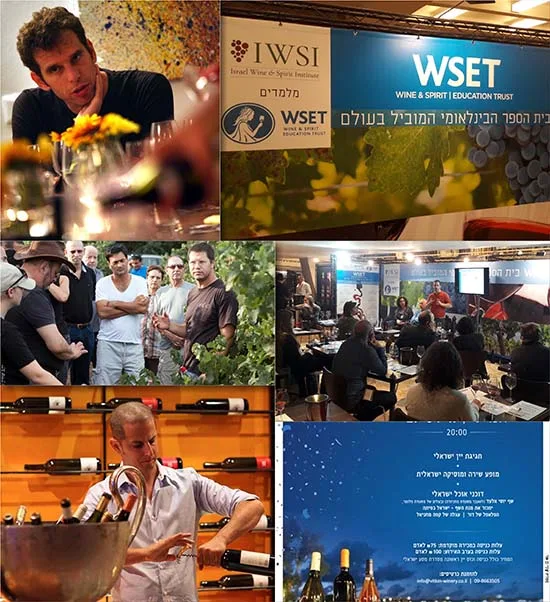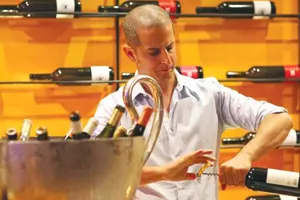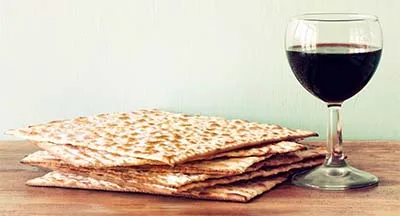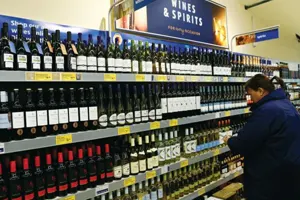Back in 1979 I was working for the brewery Charrington, part of the Bass Charrington group. By chance I was put on a wine course at the Wine and Spirits Education Trust (WSET) in London. Why Not because I expressed any interest in wine, but because they were short of numbers and I was available. This was the first step in what turned out to be a long career in wine. I remember I was given a copy of Hugh Johnson’s Pocket Wine Book for participating in the course. My first wine book. Who was to know that I would later become a contributor to this same book
The rest was in the hands of inspiring teachers and an open minded student. With wine, passion spreads like a rash. It is very aspirational. The more you know, the more you want to know. The wise teacher implants the interest, the passion and then the hunger to know more. They teach you to love the subject and then prompt you to learn about it. The more you know, the more you realize how little you know. The yearning further intensifies. Then wine takes over your life. When you are not drinking, you are tasting it, talking about it or reading about it. It becomes all consuming. Luckily Bass Charrington had wine interests. I was hooked and they sent me back to the WSET for further studies.
Blessed are the teachers that can install love and passion into the willing student. In the late 1980’s when I arrived in Israel, the main wine teachers were Effie Winter, Israel Assayel and Charles Loinger. Winter was an amateur enthusiast. Israel Assayel was self-taught who became a professional pioneer as an importer and retailer. Charles Loinger was the retired director of the Israel Wine Institute who was a consultant for Carmel and lectured on wine.
Incidentally Loinger was recently awarded the Terravino Lifetime Award, which he accepted at the ripe young age of 96. As he stood up unaided and gave a fluent speech, he notified the audience, as though to explain that he was not that old, that he had a brother living in Paris who was 105 years old! Of course we all know wine is good for you. My own famous forebear, Sir Moses Montefiore drank a bottle of wine every day and lived into his 101st year, well above the average age of the time. The proof of the pudding is clearly in the eating.
In the 1990’s the most popular wine course was given by Kobi Gat at Carmel Mizrahi. He was a winemaker, agronomist and sparkling wine specialist with Carmel, who diversified to become host of the most important wine course of the time. At the same time Tal Gal Cohen was creating the best barman courses under his company Eshkolot. Both courses were held at Carmel’s Rishon le Zion Cellars, a poignant thought now that Carmel have evacuated the historic site, closing down Israel’s most historic winery forever. Others students would go to the Technion, where they would learn from Dr. Yair Margalit, winery owner, winemaker, author and educator. He is still offering wine appreciation courses there.
In the mid-nineties two wine schools were started. Firstly was the Soreq Winemaking School established by Nir Shaham. This is the unsung hero of Israeli wine education. Countless new winemakers of domestic, gargiste or boutique wineries have passed through his hands. The school continues to go from strength to strength. He is always quiet, in the background, but he has been no less effective because of that. He has had a massive influence over the last twenty years.
The Golan Heights Winery set up a wine school with Shaked Bros. in the basement of their original Derech Ha’Yayin store in Tel Aviv. The manager of the school was the young Yair Hajdu. The school was not a great success, but Hajdu was able to take the opportunity given to build his own brand. He is today regarded as one of the most respected wine experts in Israel.
Barry Saslove, was a wine lover, who later became owner of Saslove Winery. He began to offer wine appreciation courses with his boundless enthusiasm and ability to convey and share the complicated world of wine.
By the early 2000’s the main wine courses were held by Derech Ha’Yayin chain of wine stores and Haim Gan’s Ish Anavim. This was an independent organization set up in Jaffa peddling wine culture. Over the years this has included wine events, competitions, festivals, auctions, and most important for the aspiring wine student, tastings……and courses. To many, Haim Gan became a guru like figure.
In the last ten years or so, colleges started provide courses which lasted a full academic year. Tel Hai’s Cellar Master Course and Ramat Gan College’s Wine Academy Course provided a longer course with a college certificate presented to those that completed the program successfully. Then, the Ohalo College in Katzrin started offering courses for prospective winemakers, and Ariel is the latest to join the wine education bandwagon.
The main Israeli wine education heroes have been Israel Assayel, z”l, Koby Gat, Yair Margalit, Nir Shaham, Barry Saslove and Haim Gan. They have given so much to the Israeli wine scene. They have both supported and led the consumer wine revolution here. Their praiseworthy efforts over more than 25 years, has now been complemented by two exciting, new initiatives.
Firstly, the WSET, where my wine story began so long ago, has finally made its way to Israel. Founded in London in 1969, it is now active in 73 countries worldwide. People are always curious about London’s place in the wine world. Well for 300 years, London was the center of the wine trade. It remains the most cosmopolitan wine market in the world and a disproportionate number of the world’s most prominent wine writers and experts are British. Wine trends began in London and this was where the Institute of Masters of Wine, Court of Master Sommeliers and WSET were all founded.
The WSET has been brought here by certified educator Gal Zohar. Courses are offered at Level 1, 2 or 3. The course is administered by The Israel Wine & Spirit Institute headed by Gal Zohar, the wine expert, and Ronen Arditi, the restaurateur. Gal Zohar is a graduate of the WSET Diploma program. He is an international sommelier, wine judge in international competitions, a sought after wine consultant by restaurants and hotels and co-author of the New Israel Wine Guide. Ronen Arditi is an owner, educator and consultant for restaurants.
This new set up is to be welcomed to freshen and update wine education in Israel and to bring it to international standards. Certainly for those in the wine trade, it offers a recognized qualification and is arguably the most respected wine education school worldwide. It will be the number one place in Israel for wine education of wine professionals, wine waiters, sommeliers and restaurateurs.
The graduates of the WSET, who studied in the UK, may be found amongst the leading wine professionals in Israel. They include Eran Pick MW, winemaker & CEO of Tzora Vineyards; Aviram Katz, journalist & sommelier; my son David Montefiore, wine culture manager of Tabor Winery & wine department manager of IBBLS; Debbie Shoham, ex Golan Heights Winery, and the prominent sommeliers Mor Bernstein and Shira Tsiddon, sommelier of the Norman Hotel. In Israel only three individuals have the WSET Diploma: Eran Pick MW, Gal Zohar and Chaim Helfgott.
Secondly, in a further exciting development, the Robert H. Smith Faculty of Agriculture at the Hebrew University, is opening the first academic degree program in Israel for winemakers, offering an international MSc in Viticulture and Enology. Heading the program is Professor Zohar Kerem, a researcher in food chemistry, wine quality and olive oil, and very well-respected Yotam Sharon, once winemaker at Barkan Winery, and now a winemaking consultant. Other lecturers will include Prof. Ben Ami Bravdo, Prof. Oded Shoseyev and Dr. Ron Shapira.
So for people just curious about wine, wine lovers, wine professionals and aspiring winemakers, the choices and opportunities for wine education, whether informal or formal, have never been better. There is a full spectrum of educational opportunities here. Let’s start to educate and enthuse the next generation, teaching them to love & learn about the wonderful world of wine!





